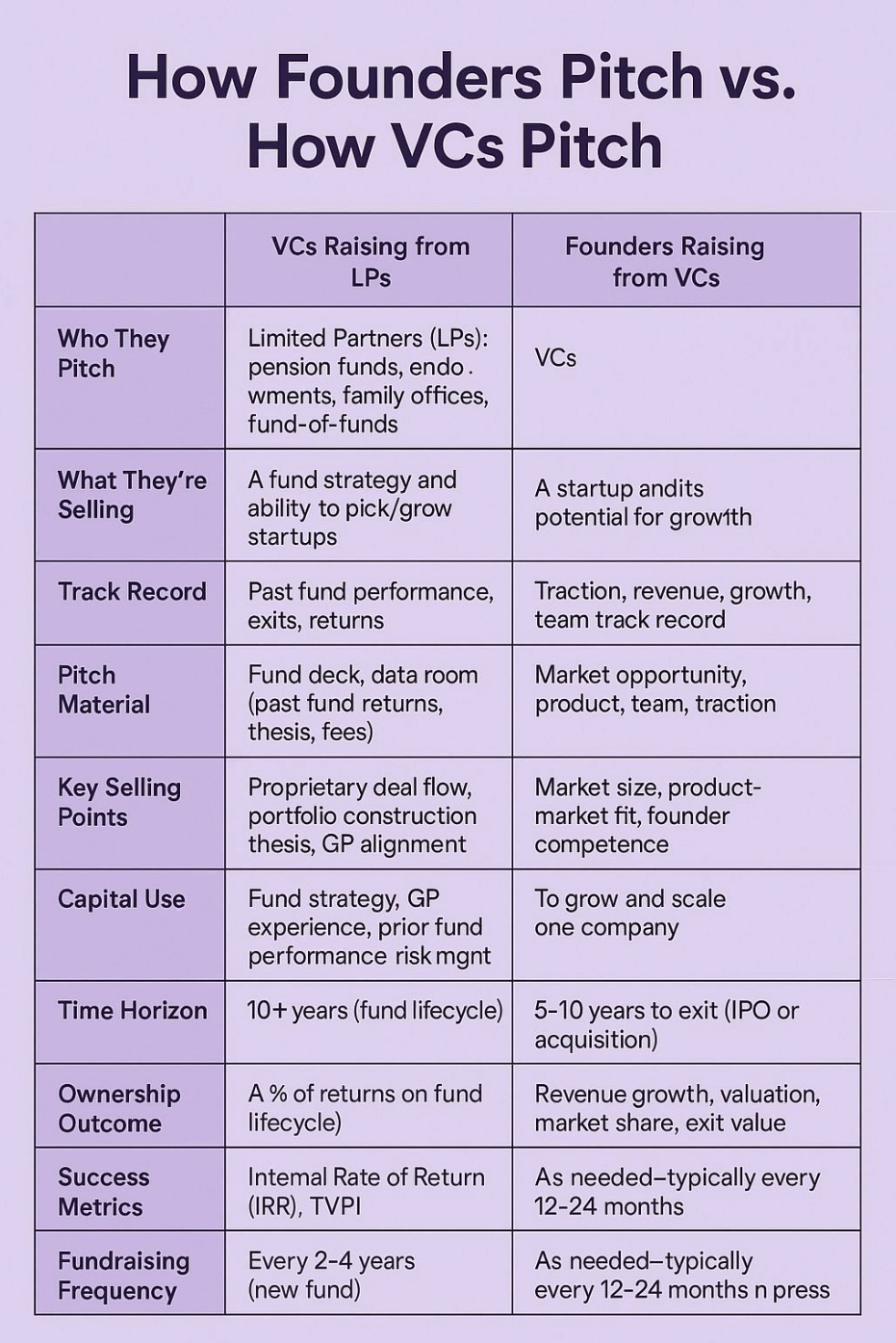Back
PRATHAM
Experimenting On lea... • 1y
Forget VC Funding: Best Alternatives of VC funding For decades, raising round after round, burning cash and the founders are left with one digit equity. VCs own the equity. Founders are like puppets. They want 10x returns in 5-7 years whether your business can handle it or not. For every Google and Airbnb, there’s a WeWork, ( which was destroyed due to overexpansion even with funding) So what’s the alternative? How do you raise capital without selling yourself 1. Revenue-Based Financing (RBF) How it works: Investors provide capital in exchange for a fixed percentage of future revenue until they make 1.5x to 4x their investment. Basically Royalty without equity No dilution, no board interference, and no pressure to scale at breakneck speed. Who’s doing it: Clearco: has invested into 10,000+ startups like Haus, Untuckit, and Andie using RBF. E-commerce brand Doe Lashes took RBF from Clearco instead of raising VC. The result? 100% founder ownership and profitable growth. 2. Crowdfunding You raise money directly from the public, turning early adopters into evangelists. Similar to IPO You get capital + market validation without giving up board seats. Who’s doing it: Kickstarter & Indiegogo helped launch brands like Pebble (smartwatch), Oculus (VR headset), and Many more 3. Decentralized Finance (DeFi) Companies issue tokens or use DeFi lending platforms to raise funds. No banks, no middlemen, no gatekeepers—just direct access to global liquidity. Who’s doing it: Aave( It's quite popular on Web3 ) & Compound let startups take out loans backed by crypto collateral. DAOs (Decentralized Autonomous Organizations) like BitDAO have raised billions without traditional fundraising. Axie Infinity raised $152M through a token sale, skipping VCs entirely and then became a $3B gaming empire. 4. Micro-Venture Capital Smaller funds invest smaller amounts in early-stage startups, often with founder-friendly terms. Why it’s different from traditional VCs: Less pressure for hypergrowth, more focus on sustainable scaling. Who’s doing it: TinySeed invests in bootstrapped SaaS startups with revenue under $1M. If your goal is fast hypergrowth, then sure VC funding makes sense. But if you want to build a long-term, sustainable business? These alternatives might be a better fit. Best for Indiecorns imo. This is probably the best post by Me imo. I had alot of fun making this post.

Replies (9)
More like this
Recommendations from Medial
Mayank Kumar
Strategy & Product @... • 1y
The Impact of Venture Capital on Innovation! Venture capital (VC) plays a crucial role in driving innovation. By providing the necessary funds, VCs enable startups to scale and develop groundbreaking technologies. Think of companies like Uber, Air
See MoreAccount Deleted
Hey I am on Medial • 1y
Welcome to Dark Pool Venture Capital-where ultra-wealthy individuals, family offices, and private funds invest off the record. Not all VC funding makes headlines. Some of it stays in the shadows. Why stay hidden? 1) No public signals, no inflated
See MoreMayank Kumar
Strategy & Product @... • 1y
Startup Funding 101: Bootstrapping vs. VC Funding Deciding between bootstrapping and venture capital (VC) funding is a critical choice for startups. Bootstrapping involves self-funding and can offer more control but may limit growth potential. V
See MoreArcane
Hey, I'm on Medial • 1y
Even though 25% of all startups on Carta have just a solo founder, VCs hesitate to fund them. Having 2 to 3 founders seems to be the sweet spot if you were to raise VC money while building a startup. So, Is there a way to make VC funding easier as
See More
Vikas Acharya
Building Reviv | Ent... • 1y
Do You Really Need Investors? Maybe Not! Fundraising vs. Bootstrapping – What’s Right for You? Bootstrapping (Pros & Cons) ✅ Full control ✅ No pressure from investors ❌ Slower growth Example: Mailchimp, Zoho, Basecamp – all built without investors
See MoreDownload the medial app to read full posts, comements and news.






















/entrackr/media/post_attachments/wp-content/uploads/2021/08/Accel-1.jpg)


















